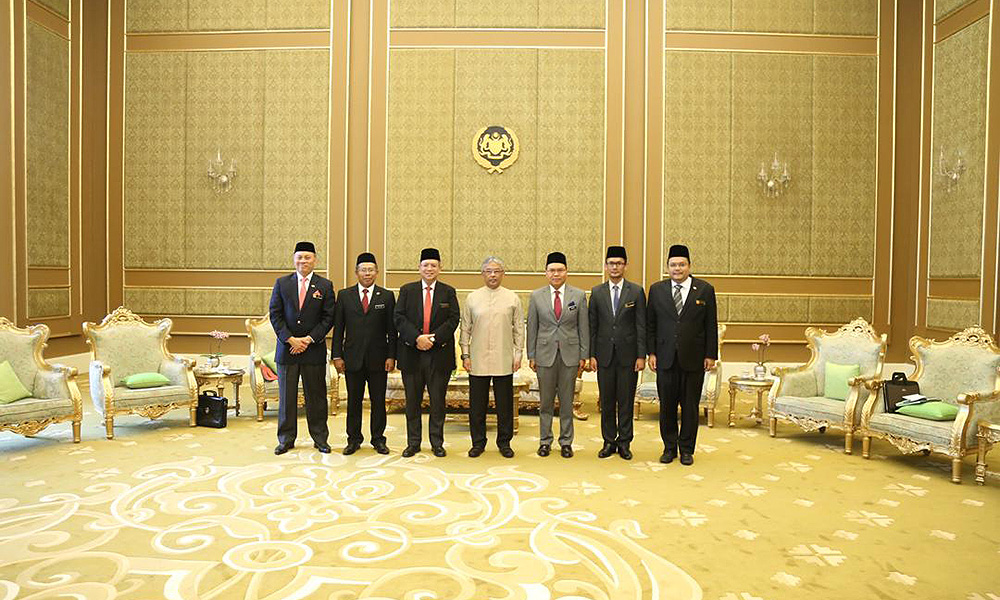Claims that war crimes could be orchestrated by those wanting to bring down the Yang di-Pertuan Agong if Malaysia acceded to the Rome Statute of the International Criminal Court (ICC) are baseless, Saifuddin Abdullah said today.
In a statement, the foreign minister dubbed the notion "false" and bereft of a basic understanding of the law and the Federal Constitution.
"The decision to sign the Rome Statute was agreed upon by the cabinet after it was satisfied that the position and the immunity of the Yang di-Pertuan Agong would not be compromised.
"In Malaysia's royal institution, and as stipulated under Article 40 (1) of the Federal Constitution, the duties of the Yang di-Pertuan Agong are carried out upon the advice of the prime minister or the cabinet.
"Therefore, Malaysia acceding to the Rome Statute will not compromise the position or the immunity of the King," he said.
On Monday, Johor Crown Prince Tunku Ismail Sultan Ibrahim (below) said that orchestrated war crimes by those wanting to see the royal institution fall are among the reasons the Rome Statute should be opposed.
"I'm not afraid & not the Agong. I'm trying to protect the King. What if there are orchestrated war crimes & such? Key word 'orchestrated', those wanting to menjatuhkan sistem diraja (bring down the royal institution) can do that, & the King takes the hit.
"Or is someone trying to be the commander in chief?" he had tweeted. The tweet is no longer available.
The crown prince was then replying to a Twitter user who pointed out that the Malay rulers should not worry about losing their relevance under the Rome Statute, as it only governs the ICC.
The ICC tries four core international crimes, namely genocide, crimes against humanity, war crimes and crime of aggression.
No amendments needed
Saifuddin also responded to Tunku Ismail's earlier claim that Putrajaya failed to consult the Conference of Rulers when it decided to ratify the Rome Statute.

According to the minister, being an ICC signatory does not require Malaysia to amend its constitution, as only amendments to substantive laws and procedures should be carried out.
"Responding to the notion that the Conference of Rulers' consent is needed, according to the Federal Constitution, such consent is only needed when it involves constitutional amendments to nine items, and Malaysia acceding to the Rome Statute does not come under the nine.
"However, the cabinet decided to have an audience with the Yang di-Pertuan Agong on the decision to accede to the Rome Statute out of respect for the royal institution," he said.
"Besides, Clause (1) Article 80 of the Federal Constitution, read together with Article 39 and Clauses (1) and (2) Article 74, says that matters pertaining to signing and implementing international instruments, which concerns foreign affairs, is under the jurisdiction of the federal government's executive powers.
"I hope by these explanations, confusing questions will no longer arise in the matter."
Saifuddin met with Yang di-Pertuan Agong Sultan Abdullah Sultan Ahmad Shah yesterday to explain Putrajaya's ratification of the international treaty.
The minister said that he explained the pertinent issues to the king, who in turn decreed him to publicise it.
Malaysia acceded to the Rome Statute on March 4. To date, 124 countries have become signatories.


